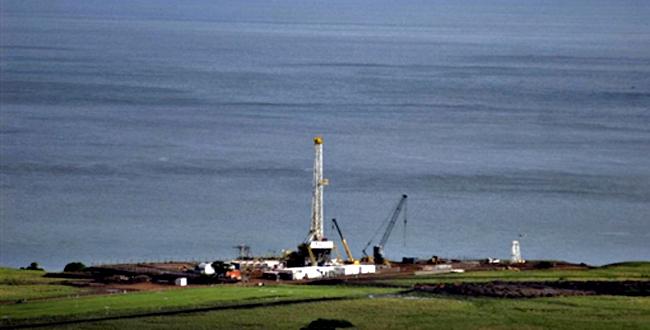The World Wide Fund for Nature (WWF) has expressed environmental concern for the area around Lake Albert on the Congo DRC side following reports an Israeli company has discovered potential for presence of 3.0 billion barrels of oil.
The discovered potential adds to smaller finds of natural gas and oil deposits in the DRC towards the west of the nation. But the Fund has especially expressed fears of environmental degradation after the news of a massive discovery at lake Albert if exploitation should start at the significant discovery.
Reacting to reports of the oil discovery, WWF has cautioned that the environment should be preserved and exploitation of petrol forbidden in National Parks, according to the DRC’s Radio Okapi monitored by TZ Business News Special Corresponded, Karume Asangama. Radio Okapi broadcasts from Congo DRC.
Public documents say WWF was formed in 1961 to stop the degradation of the planet’s natural environment and to build a future in which humans live in harmony with nature, by conserving the world’s biological diversity, ensuring that the use of renewable natural resources is sustainable, and promoting the reduction of pollution and wasteful consumption.
Exploration for oil and gas in DRC began in the 1960’s along the country’s 22 km Atlantic Ocean coastline at the estuary of the Congo River (Congo) which is sandwiched between the prolific offshore producing region of northern Angola and its oil-rich enclave of Cabinda.
Exploration continued during the 1970’s and early 1980’s and by 1983, 41 wells had been sunk. Out of this activity, 5 operating oil fields and 1 gas field were discovered, the most significant finds being offshore. Of these, the Mibale field, discovered in 1973 by Chevron, contains 48% of the Coastal Basin’s recoverable reserves and remains Congo’s most productive field. The gas field discovered has so far not been exploited. In 1998 the DRC closed down its only simple oil refinery – SOCIR refinery – owned by Xoil and the Government of the DRC.
A company owned by an Israeli mining magnate, Dan Gertler, says it has discovered vast potential reserves of oil in the strife-torn north eastern province of the Democratic Republic of Congo at the Lake Albert area.
Oil of DR Congo, a subsidiary of the Fleurette Group, has said in a statement that seismic testing from Lake Albert, which forms part of the northeastern border with Uganda, indicated reserves of around three billion barrels of oil, the French News Agency AFP has reported. If confirmed, exports of the oil from the lake will boost the gross domestic product (GDP) of the vast central African nation by 25 percent, the statement said.
According to the World Bank, the DRC’s GDP in 2013 was $30.6 billion in the nation of 67 million people. Oil of DRCongo said it planned to conduct more tests and to establish exploratory wells, but warned that further development was bound to affect people living by the shore of the lake in the restive territory.
Preparation for drilling will include relocation of some local communities, transportation of the drilling equipment to the site, installation of a base camp for staff, new supply roads, a new dock on Lake Albert and a landing strip for moving personnel and equipment,” the company statement said.
The enormous find on DRC territory “mirrors that of the Ugandan side” of the lake, the company said but gave no further details, AFP reports. The company highlighted efforts it has made in return to help local residents by building roads and schools and giving financial support to a medical and maternity centre.
Omar Kavota, a spokesman for civil society groups in North Kivu, which lies south of the lake, said the reported oil find could be “a source of opportunity to boost the level of the economy”.
But he insisted that “the wealth must be exploited in a legal way to benefit everybody”, arguing that if this failed to happen, “neighbouring states could manipulate armed groups to make this part of the country ungovernable—which may stop the DRC from benefitting from its natural resources.”
Armed groups, including rebel forces from Uganda and its small southern neighbour Rwanda, have for decades battled in the northeast province of the DRC over land and valuable minerals.
Dan Gertler, whose net worth is estimated at $2.5 billion by the US business magazine Forbes, is thought to be close to the DRC President Joseph Kabila, and has a wide range of interests from mining to trade, according to the Fleurette Group. He has reportedly created more than 20,000 jobs in the DRC after buying his first mine in the troubled country in 1997.
The country has enormous potential in mineral wealth, with huge reserves of cobalt, copper, diamonds, gold, silver, zinc and uranium largely in the east. But for decades conflict has kept the country classified as a low-income, with 70 percent of its people living below the poverty line.





